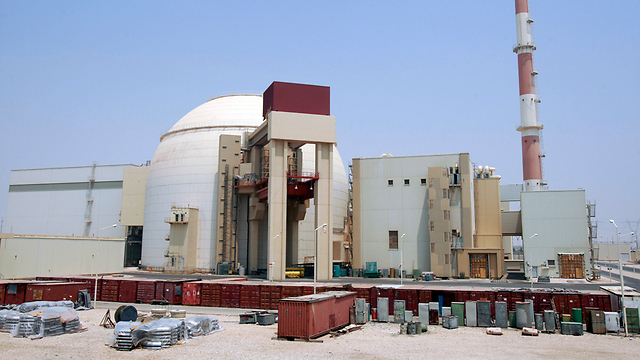
US President-elect Donald Trump. American-Israeli partnership needed
Photo: AP

Amos Yadlin
Photo: Motti Kimchi

Trump’s Iranian challenge is an opportunity for Israel too
Analysis: The question is not whether the new US administration should stick to the nuclear deal or tear it up, but rather how it should maintain the agreement’s achievements in the near future in order to fix its difficult strategic flaws in the long run. Israel is now being given a second chance to influence the US policy on this issue.
When Donald Trump entered the White House, he will have found a number of important missions on foreign affairs waiting on his desk. The Iranian issue is one of them. The discussion of a recommended strategy vis-à-vis Iran is just around the corner, and the decision must be made between alternatives that are more sophisticated than “supporting” or “opposing” the nuclear agreement. This is also an opportunity for Israel to fix the failures of its conduct in the summer of 2015.

During the election campaign, Trump blatantly opposed the nuclear agreement, threatening to “rip it to shreds,” but in the Senate hearings his nominees for the new administration expressed a more moderate ton. The secretary of defense-designate, Gen. James Mattis, for example, argued that although the agreement was not a good one, the United States had to fulfil its commitments. The designated secretary of state and CIA director emphasized the shortcomings of the agreement but vowed to tightly supervise its implementation and not to take any steps to annul it.

Iranian nuclear reactor in Bushehr. The new US administration is an opportunity for Israel to fix the failures of its conduct in the summer of 2015 (Photo: Reuters)
The question, therefore, is not whether the new administration should stick to the agreement or tear it up, but rather how it should maintain the agreement’s achievements in the near future in order to fix its difficult strategic flaws in the long run.
An immediate annulment of the agreement could isolate the US from its allies that support it and affect the two leverages of pressure that led Iran to the agreement: imposing effective international sanctions and giving legitimacy to a valid military option. Even if there is some logic in cancelling the agreement, it would be best to wait for a good opportunity in the form of a significant Iranian violation of the agreement or a line crossed in Iran’s policy in the region in different aspects.
In the short run, the agreement has some advantages. It has extended, in its first years, the Iranian pathway to a bomb from several months to a year, while maintaining a tight supervision regime on important elements in the nuclear program. Nevertheless, the agreement is problematic on two other aspects: Giving a free hand to Iran’s negative activity in non-nuclear areas, and the approval of a legitimate, advanced and unlimited nuclear program in the second half of the agreement period. Furthermore, the agreement includes no restrictions on the Iranian missile program, which is critical for building an operational nuclear ability.
From an overall point of view, it would be wrong to give up the agreement’s achievements, particularly in the first years, before the main restrictions on the nuclear program start becoming invalid. At the same time, it would be wrong to allow the radical regime in Iran to reach advanced nuclear capabilities which are made possible in the later years of the agreement.
With the arrival of the new administration, Israel has been given a second chance to influence the US policy towards the Iranian nuclear program: an opportunity for joint action against Iran and advancing a parallel agreement, an Israeli-American one, aimed at changing the strategic reality without violating the agreement.
First of all, the two countries must agree on a new public red line. While the Obama administration was unwilling to act as long as Iran was not trying to produce a nuclear weapon in practice, Israel should aspire to influence the Trump administration and respond undauntedly to Iranian attempts to take advantage of breaches in the agreement. Second, the two leaderships must agree on the intelligence system that will be operated to discover Iranian violations, and on a basket of responses to any such violation. It is also necessary that the understandings with the US will put Israel’s military option back on the table as a last resort in order to prevent a nuclear Iran. Finally, Washington and Jerusalem must come up with a plan of action against the Iranian support for terror organizations in the region and enforce United Nations Resolution 2231, which prohibits Iran from developing the program involving ballistic missile carrying nuclear warheads.
As part of the attempts to restore relations between Israel and the US, there is an urgent need for a strategy that will restore the deterrence against Iran and prevent it from taking advantage of the nuclear agreement’s weak spots. If the deterrence and diplomacy fail, the American-Israeli partnership will be the way to prevent Iran from obtaining a nuclear weapon.
Maj. Gen. (res.) Amos Yadlin is the director of Tel Aviv University’s Institute for National Security Studies (INSS, which will hold the Strategic Assessment for Israel international conference next week.















